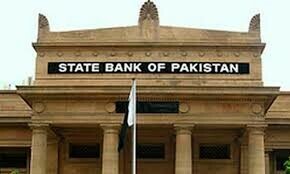BRITAIN’S departure from the EU will deprive the eight other countries in the bloc that are not in the euro of a powerful ally, forcing them into difficult policy choices, according to officials and analysts in the nations concerned.
“The UK’s exit from the EU will change the relationship between eurozone countries and those without the common currency, to the detriment of the latter,” said Sebastian Plociennik, head of the EU programme at the Polish Institute of International Affairs, a think-tank.
“They will be faced with a choice between fast-track adoption of the euro or political and economic marginalisation.”
While not everyone in non-euro countries would see the future in such stark terms, the non-euro nations are worried that, without the UK, the EU balance of power will swing strongly in favour of eurozone governments. That could make it more difficult for the interests of those outside the single currency to gain a proper hearing.
To the extent that France, Germany, Italy and others pursue initiatives aimed at closer economic, financial and fiscal integration of the eurozone, the impression could arise that the non-euro countries are stuck in a sort of EU second tier or outer circle.
Lubomir Zaoralek, Czech foreign minister, was among the first to warn of the risks, saying in the wake of the Brexit vote: “The debate on the EU’s future must take place on the platform of 27 states . . . The wrong response would be hasty integration.”
One early casualty of Brexit was a deal which David Cameron, former prime minister, negotiated in February to loosen the terms of British membership: that ‘measures, the purpose of which is to further deepen economic and monetary union, will be voluntary for member states whose currency is not the euro’
Apart from the UK, the non-euro states in the EU are Bulgaria, Croatia, Czech Republic, Denmark, Hungary, Poland, Romania and Sweden.
Disagreements run deep among eurozone governments over a more integrated currency union, including on common deposit insurance and fiscal transfers. But countries doubtful about adopting the euro, such as Poland and Sweden, found the UK a reassuring presence in Brussels, demonstrating with its economic weight and financial sector’s strength that the EU was beyond doubt a multicurrency union.
With the UK inside the EU, the combined gross domestic product of the non-euro member states amounts to about 40pc of that of the 19 eurozone nations. With the UK out, the GDP of the non-euro states will shrink to about 16pc of the eurozone.
One early casualty of Brexit was a deal which David Cameron, former prime minister, negotiated in February to loosen the terms of British membership — an agreement that had important implications for non-euro countries.
It stated that ‘measures, the purpose of which is to further deepen economic and monetary union, will be voluntary for member states whose currency is not the euro’. This meant, for instance, that non-euro countries were free not to assist in the financial rescues of eurozone states.
Thanks to the UK’s Leave vote, that deal is no longer valid. The EU reverts to the status quo ante, in which Denmark alone has a legally enshrined right not to adopt the euro, although Sweden rejected joining the currency union in a 2003 referendum, and other governments have not pressed Stockholm hard on the issue since then.
All the central and eastern European states that joined the EU between 2004-13 are, under EU law, obliged to adopt the euro if they meet the membership criteria.
This worries Poland, the largest economy in central and eastern Europe and the sixth largest in the EU. Speaking a few days after the UK referendum, Witold Waszczykowski, Poland’s foreign minister, said: “Joining the euro today and taking on a common economic policy with its taxes, fiscal solutions, minimum wage based on the level used in western Europe — this would be a disaster for the Polish economy.”
At the same time, Mr Waszczykowski also sees the disadvantages of being on the outside. “If we’re not in the eurozone, then we will not be able to take part in the political structures which the eurozone wants to create,” he said.
Published in Dawn, Business & Finance weekly, July 25th, 2016















































Dear visitor, the comments section is undergoing an overhaul and will return soon.